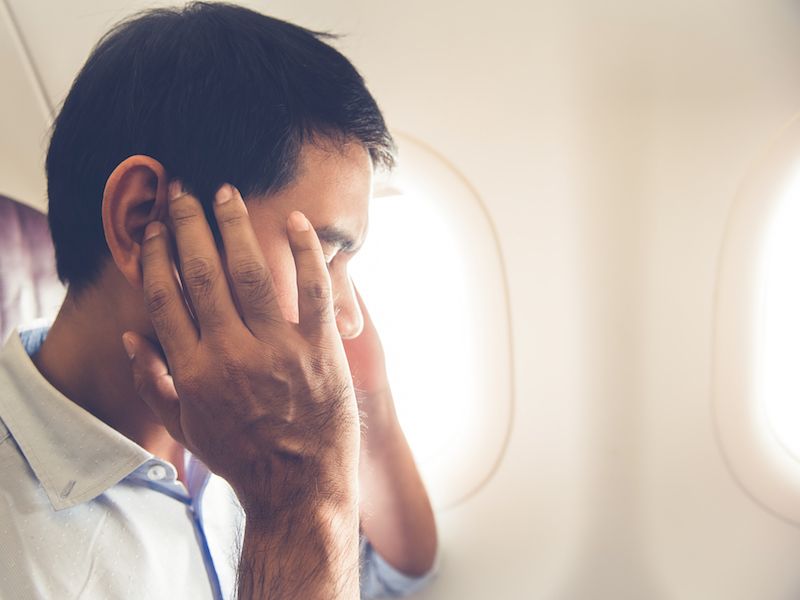
You have good days, and you have bad days, that’s normal for people with tinnitus but why? More than 45 million Americans suffer from ringing in their ears from a condition called tinnitus, according to the American Tinnitus Association, and that’s accompanied by hearing loss by around 90 percent of them.
But what’s hard to understand is why it’s nearly non-existent on some days and on others the ringing is so invasive. Some common triggers may explain it but it’s still not clear why this occurs.
What Is Tinnitus?
Tinnitus describes a condition where the patient hears phantom noises such as:
- Clicking
- Roaring
- Hissing
- Ringing
- Buzzing
One of the things that makes tinnitus so disturbing is that you hear it but no one else can. The noise can vary in pitch and volume, too. It might be gone one day and the next it’s a roar.
What Causes Tinnitus?
The most prevalent cause is a change in a person’s hearing. These changes might be due to:
- Aging
- Earwax build up
- Ear bone changes
- Noise trauma
There are other likely causes, also, such as:
- Atherosclerosis
- High blood pressure
- Acoustic neuroma
- Head injury
- A problem with the carotid artery or jugular vein
- Tumor in the head or neck
- Meniere’s disease
- TMJ issues
Sometimes there is no apparent reason for tinnitus.
Consult your doctor to have your ears tested if you suddenly observe the symptoms of tinnitus. The problem may be something treatable or even a symptom of a life-threatening condition such as high blood pressure or heart disease. It might also be a side effect of a new medication.
Why Does the Ringing Get Worse on Some Days?
It’s somewhat of a medical mystery as to why some days are worse than others for those who have tinnitus. And there may be more than one reason depending on the person. There are common triggers that might explain it, though.
Loud Events
Your tinnitus can be aggravated by loud events like concerts, club music, and fireworks. If you expect to be subjected to loud noise, your best option is to wear hearing protection. They make earplugs, for instance, that will allow you to enjoy music at a concert but reduce the impact it has on your hearing.
You can also stay away from the source of the sound. For example, don’t stand next to the speakers when attending a concert or up front at a fireworks display. Combined with hearing protection, this will reduce the effect.
Loud Noises at Home
Loud noises around your home can also be a problem. Tinnitus can be triggered by a lawn mower for instance. Here are various other sounds from around the house that can cause damage:
- Laundry – If you fold clothing while the washer is running, for instance.
- Woodworking – Power tools are loud enough to be an issue.
- Wearing headphones – The function of headphones is to boost the volume of your audio which could be aggravating your tinnitus so it might be time to lose those earbuds.
If you can’t stay away from loud noises at least put in hearing protection.
Noises at Work
Loud noises at work are just as damaging as any other. If you work around machinery or in construction it’s especially crucial to wear ear protection. Your employer will probably supply hearing protection if you make them aware of your concerns. Spend your personal time letting your ears rest, too.
Air Pressure Changes
When most people go on a plane they experience ear popping. An increase in tinnitus can happen because of the noise of the plane engine and the change in pressure. If you are traveling, take some gum with you to help equalize the air pressure and think about hearing protection.
You can experience changes in pressure without leaving your home, too. Taking the right medication to alleviate sinus pressure is also helpful.
Medication
Speaking of medication, that may also be the problem. Certain drugs are ototoxic, meaning they have an impact on the ears. Included on this list are these common medications:
- Over-the-counter pain relievers
- Diuretics
- Antibiotics
If you’re experiencing an intensifying of your tinnitus after you begin taking a new medication, consult your doctor. It might be feasible to switch to something else.
Tinnitus is an irritation for some people, but for others, it can be disabling. The first step is to figure out what’s causing it and then consider ways to keep it under control from day to day.
